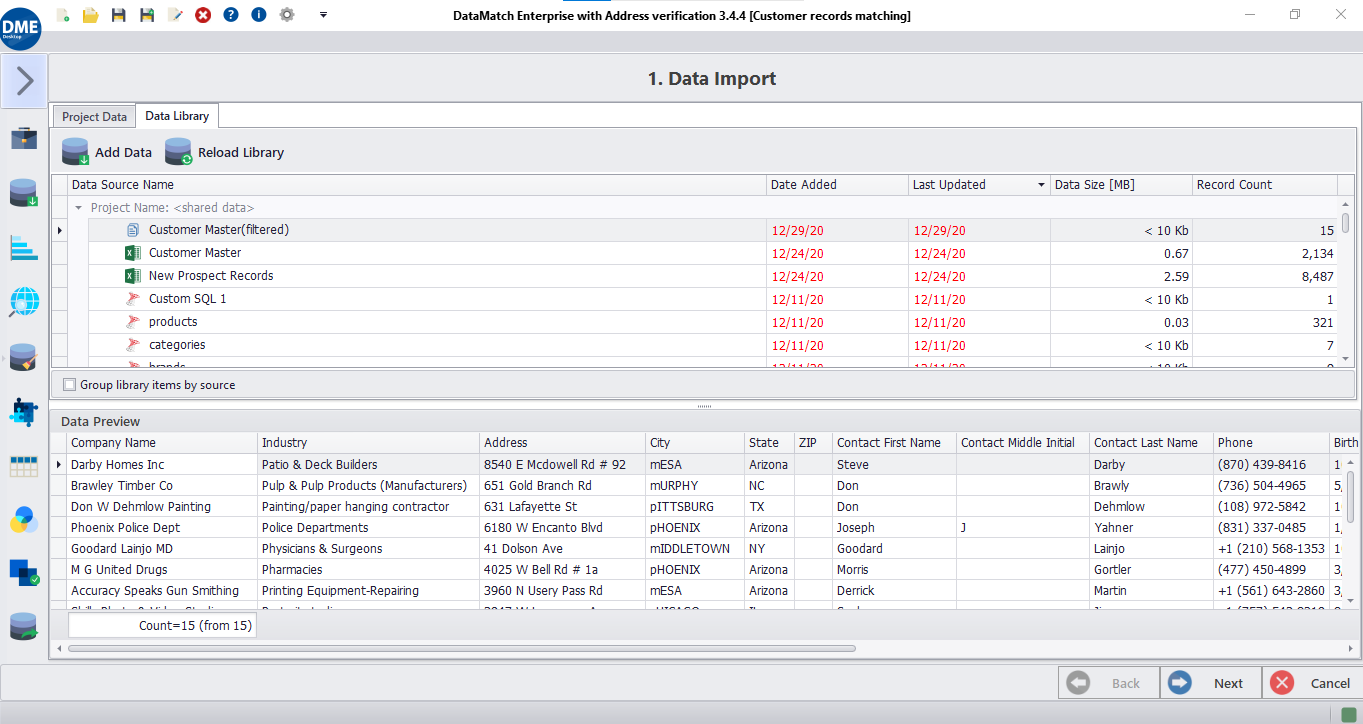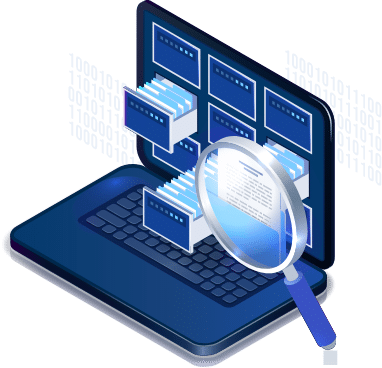Data import
All-in-one solution for connecting and combining data from multiple disparate sources – including file formats, relational databases, cloud storage, and APIs – and merging them to attain clean and standardized data.

Trusted By





Trusted By






DEFINiTION
What is data import?
Data import is a feature that enables and allows you to connect disparate data sources to one application – especially for the purpose of data cleansing, matching, deduplication, or merge/purge.
Data import option must support multiple data inlets, such as local files (text files, CSV, excel sheets), databases (SQL Server, Oracle, Teradata), cloud stores (CRMs such as Salesforce), APIs, and other databases using ODBC connection.
Benefits
Why do you need data import?
Bring it all together
Join data from a variety of data stores and applications and keep all information related to an entity at one place.
Standardize data across sources
Resolve the syntactic and semantic differences in data values that develop while residing in siloes across multiple sources.
Drive holistic business insights
Ensure the accuracy of data-driven decisions by considering all data dimensions captured at different points in time.
Build a single source of truth
Provide a single source of truth to employees and customers by combining and joining data from varied sources.
Features
What can DataMatch Enterprise’s data import do for you?

There’s more
What else do you get out of the box?
- Live preview of imported data
- In-built and custom connectors
- Support for bulk imports
- SQL scripting for custom import
- Data source and project library
- Data files and fields renaming
- Replace and reload data sources
- Multi-format support for exporting results
User roles
A tool made for everyone

Data analysts

Business users

IT Professionals

Novice users
Features
We take care of your complete DQM lifecycle
Import
Connect and integrate data from multiple disparate sources

Profiling
Automate data quality checks and get instant data profile reports

Cleansing
Standardize & transform datasets through various operations

Matching
Execute industry-grade data match algorithms on datasets

Deduplication
Eliminate duplicate values and records to preserve uniqueness

Merge & purge
Configure merge and survivorship rules to get the most out of data
Want to know more?
Check out DME resources

Merging Data from Multiple Sources – Challenges and Solutions
Oops! We could not locate your form.

The Truth About Data as a Service (DaaS): Why It All Breaks Without Data Matching
Everyone’s Talking About DaaS, Few Are Ready for It The concept of Data as a Service (DaaS) is having its moment. On paper, it’s easy

Big Data Analytics Is Booming – But Is Your Data Ready for It?
Amazon generates 35% of its revenue from data-powered recommendations. Netflix enjoys an 89% retention rate by personalizing every experience using viewer behavior, preferences, and interaction

The Truth About Data as a Service (DaaS): Why It All Breaks Without Data Matching
Everyone’s Talking About DaaS, Few Are Ready for It The concept of Data as a Service (DaaS) is having its moment. On paper, it’s easy

Big Data Analytics Is Booming – But Is Your Data Ready for It?
Amazon generates 35% of its revenue from data-powered recommendations. Netflix enjoys an 89% retention rate by personalizing every experience using viewer behavior, preferences, and interaction

Data Ethics in the Age of AI: Why Responsible Matching Matters More Than Ever
When AI systems deliver inaccurate or inequitable results, many people immediately assume that something went wrong in the algorithms. Rarely do we look upstream –







































